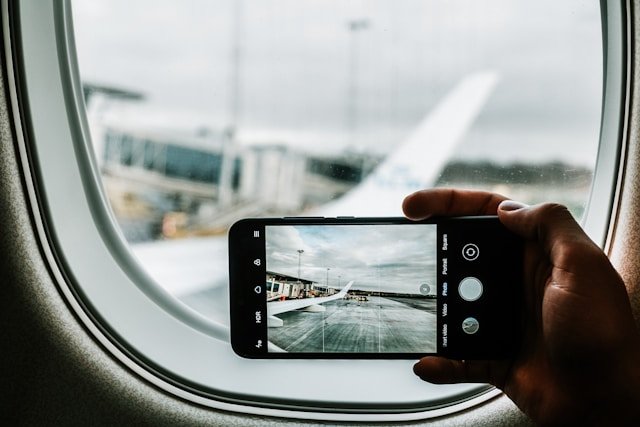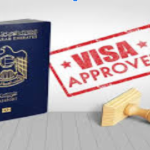Travel in 2025 looks completely different from just a decade ago. Technology has transformed every step of the journey, making it easier to plan, book, and explore destinations around the world. From AI-powered itinerary builders to mobile boarding passes and eSIMs, travellers today rely on digital solutions for convenience and peace of mind.
For Indian travellers in particular, this shift has been a game-changer. What once required weeks of preparation can now be handled in a matter of clicks. The rise of online tools and smarter travel platforms means less paperwork, fewer queues, and more time spent experiencing the destination itself. Whether you’re booking a spontaneous weekend trip or planning your first international holiday, technology ensures that travel in 2025 is smoother, smarter, and more enjoyable than ever.
1. Smarter Travel Planning with Apps and AI
Gone are the days of sitting with a paper guidebook and manually searching for flights. Today’s travellers use apps and AI-driven platforms to compare fares, find hidden deals, and even create custom itineraries. Tools like Google Travel or Hopper predict airfare trends, while AI assistants suggest the best times to book.
This is particularly useful for first-time international travellers, who may find the planning process overwhelming. By relying on smart algorithms, you can cut down hours of research into minutes, ensuring you don’t miss out on the best options for your trip.
2. Hassle-Free Paperwork Through Digital Solutions
Handling paperwork used to be the most stressful part of international travel, but in 2025 digital platforms have made it effortless. Many countries now provide e-visas, online verification, and biometric systems, cutting down the need for embassy visits and lengthy forms. For Indian travellers, this shift is especially valuable. Applying for an urgent Dubai visa can now be done entirely online—simply upload your documents, make a secure payment, and receive approval within hours. With digital boarding passes, online check-ins, and smart verification tools, travel formalities are faster, safer, and far more convenient than ever before.
3. Seamless Bookings and Digital Payments
Booking flights, hotels, and activities has become faster and more secure thanks to online platforms. With a few taps, you can reserve accommodations, buy attraction tickets, and even secure airport transfers in advance.
Digital payments add another layer of convenience. From UPI and digital wallets to prepaid forex cards, travellers no longer need to carry large amounts of cash. Many destinations, including Dubai, are now cashless-friendly, making international travel less stressful for Indian tourists.
4. Immersive Travel Experiences with VR and AR
Technology is also changing the way we experience destinations. Virtual reality (VR) allows travellers to preview hotels, attractions, or even entire neighbourhoods before booking. Augmented reality (AR) apps enhance museum visits or city tours by providing interactive guides, translations, and 3D reconstructions.
For travellers, this means a richer, more informed experience. Imagine standing at a historic landmark while your phone instantly overlays stories, maps, or language translations; it’s like carrying a personal tour guide in your pocket.
5. The Rise of Curated and All-in-One Travel Packages
Another shift in modern travel is the popularity of curated, all-in-one packages. Instead of juggling separate bookings for flights, hotels, and activities, travellers prefer bundled solutions that save time and reduce stress.
Options like Dubai Tour Packages are a great example. They often include everything, flights, accommodation, transfers, and entry to major attractions, making it easier for families and first-time international travellers to enjoy a seamless holiday. These packages are not only cost-effective but also ensure that you don’t miss out on the city’s highlights.
6. Staying Connected with Smart Tech
Staying online has become a necessity for modern travellers. With the rise of eSIMs, portable Wi-Fi devices, and global roaming packs, travellers no longer worry about losing connectivity abroad. Language translation apps and instant navigation tools further make international trips stress-free.
For Indian travellers, especially solo explorers, this connectivity provides reassurance, helping them stay in touch with family, navigate unfamiliar cities, and access emergency help if needed.
7. Safety, Navigation, and Real-Time Updates
Safety is another area where technology plays a vital role. GPS navigation apps prevent travellers from getting lost, while ride-hailing apps like Uber and Careem ensure secure local transport. Emergency apps provide instant access to local police, hospitals, or consulates.
Real-time weather and flight updates keep travellers informed and prepared, reducing the chances of unpleasant surprises. Together, these technologies create a safer, more predictable environment for tourists.
Conclusion
Technology has completely redefined the way we travel in 2025. From digital paperwork and seamless bookings to immersive experiences and smart safety tools, every stage of the journey is now faster, easier, and more enjoyable.
For Indian tourists, this digital transformation means less stress, more convenience, and greater confidence while exploring the world. Whether it’s simplifying entry formalities, booking smarter, or navigating new destinations, technology has turned international travel into an experience that feels more personal and rewarding than ever before.









